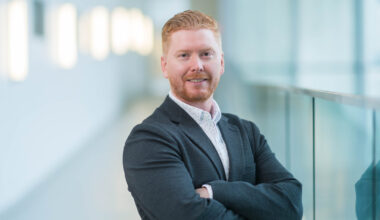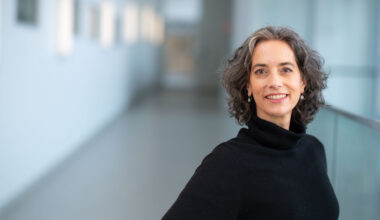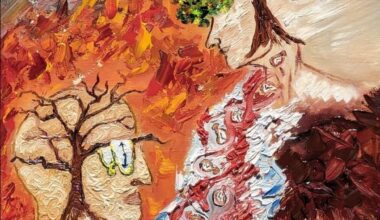The Alzheimer Society of B.C. and UBC celebrated a decade-long partnership in maintaining the Ralph Fisher and Alzheimer Society of B.C. Professorship in Alzheimer Disease Research earlier this week and welcomed Dr. Robin Hsiung, who was recently awarded the Professorship.
“We are so proud of our partnership with UBC and the role the Professorship has played in supporting world-class scientists who are making B.C. a pre-eminent place for research on dementia,” says Alzheimer Society of B.C. CEO, Maria Howard. “We are working towards our ultimate vision: a world without Alzheimer’s disease or other dementias.”
The Alzheimer Society of B.C. and the UBC Hospital Clinic for Alzheimer and Related Disorders at the Djavad Mowafaghian Centre for Brain Health have a shared goal of supporting research to find the causes and cures of dementia. There are approximately 70,000 people living with Alzheimer’s disease or another form of dementia in B.C. – and millions of hours spent caring for them.
“This Professorship is a tangible and symbolic representation of the strength of our relationship with the Alzheimer Society of B.C., as well as our commitment to dementia research,” says Dr. Haakon Nygaard, Assistant Professor in the Division of Neurology, and the Charles E. Fipke Professor of Alzheimer’s Research at UBC. “It has helped to foster cutting-edge science in British Columbia, and to continue to move research and discovery forward faster.”
Dr. Robin Hsiung is Associate Professor in the Division of Neurology, Department of Medicine at the University of British Columbia, and a staff neurologist at the UBC Hospital Clinic for Alzheimer and Related Disorders and St. Paul’s Hospital.
His work has yielded promising results, including discovery of genetic risks associated with Alzheimer Disease and Frontotemporal Dementia, and development of biomarkers and clinical assessment tools to recognize the earliest phases of dementia. He’s also providing leadership on clinical trials that investigate cutting-edge therapies for the disease at various stages.
“My work is focused on understanding the neurological basis of cognition and the pathological mechanisms leading to dementia. This is a great opportunity to continue this work – and for families affected by the disease, it provides hope of a future without dementia,” says Dr. Hsiung.


